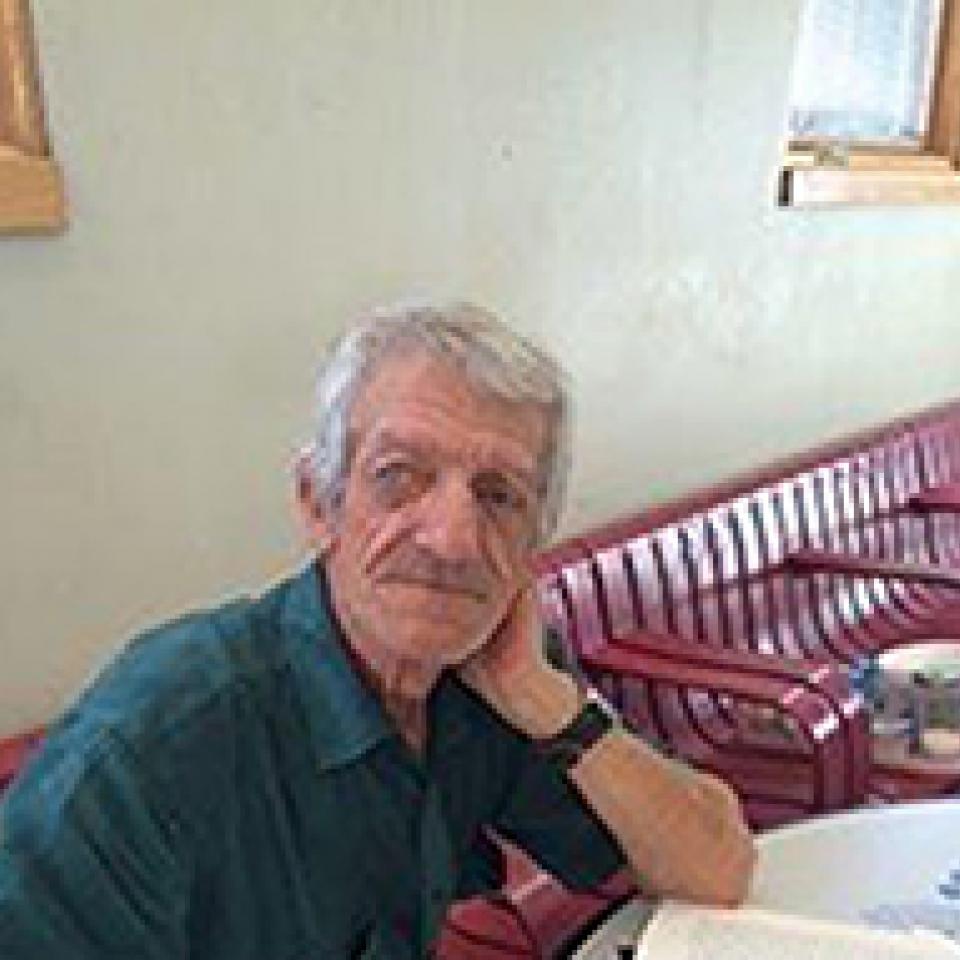Pass the Mic features the voices and stories of people with a lived experience of homelessness. In this edition, hear from Deborah - a US Army veteran, Bingo lover and lifelong volunteer.
The Mayor’s Office of Homeless Services has declared a winter shelter warning for Friday, January 24, 2025, at 4 pm until Wednesday, January 29, 2025, at 9 am. Call 211 (available 24/7) or 443-984-9540 to connect with shelter. Get more info here.



12.21.16
Andras Horvath was stabbed to death on the sidewalk on December 2, 2016. He was a 73-year-old, chronically homeless Hungarian man. He was fully blind in one eye. Given his age, he had an enviably full head of silver hair. He went by Andy.
When he first began working with Health Care for the Homeless, Andy seemed hardened, indifferent to help, and apathetic about his life. He often spoke in devastating, bleak detail about his potentially fatal medical conditions and 10 depressing years living at Baltimore Rescue Mission. He would shrug before stoically concluding, "it's OK."
Our team soon realized that this was self-protective behavior. During the decade that he experienced homelessness, numerous helping organizations began but ultimately fell short of untangling problems related to Andy's nationalization documents. Andy had a documented, legal work history in the US, and received SSI. But having lost all of his official identification he was unable to apply for any of the subsidized, affordable senior housing that his age should have allowed him to enter. This seemingly simple, banal problem of missing paperwork was decisive in perpetuating his experience of homelessness.
Though Andy was eager to convey that he was proudly solitary, he was interested in connecting with other people. He loved long conversations. He was often observed spending whole afternoons talking with people that he did not even particularly like. Given the amount of stability, respect and love he was denied, Andy was uncommonly genial, social and gregarious.
He did not have material stability as a young person, and moving abruptly from one caregiver's home to another's probably affected his relationships for the rest of his life. To escape an unhealthy, abusive family situation as quickly as possible, a 16-year-old Andy forged paperwork so he would appear old enough to join the Hungarian army. Andy served as a Lieutenant in Vietnam. Returning from deployment, he was soon incarcerated for participating in a group resisting Soviet occupation. After experiencing four years in Russian prison, he decided to leave Europe altogether.
He arrived in America and found work as a cabinetmaker. When his wife of 23 years died, Andy began drinking extreme amounts of alcohol. He was a functioning alcoholic until he retired at 65. Without routine or purpose, he drank more, which lead to him losing his apartment, and contributed to several serious medical problems.
Recently, things seemed to finally be improving for Andy. I talked to him the week before he died. The birth certificate we requested from the Hungarian Embassy had arrived, and he was close to getting his green card. Multiple medical specialists were finally communicating with each other and devising a plan of care to treat him. He said that he was physically pain free for the first time in several years, and allowing himself to feel hopeful. He was beginning to believe there was some possibility that he might be able to leave Baltimore Rescue Mission.
Andy believed strongly that people should be logical, independent and self-contained. He was dependable; the numerous times that he was unable to access urology, oncology or gastroenterology were uniformly due to issues with his providers, never because he did not do his part to show up. Police initially did not release his name after he was killed because they hoped that they might be able to notify his family. He had none. He was well-liked by residents and staff at the shelter, and a regular presence at Beans and Bread.
—Phill Sheldon, Convalescent Care Coordinator, Health Care for the Homeless
More Recent News
Follow a “Day in the life” of SOAR, one of our littlest known programs that makes a big impact for people experiencing homelessness with mental health disabilities. SOAR Coordinator Mina Davis-Harrison and Disability Outreach Assistant Specialists Dave Ramsey and Natasha Legette facilitate the national “SSI/SSDI Outreach, Access, and Recovery” program for all of Baltimore City.
Youth Empowered Society (YES) is Baltimore City’s only drop-in center for youth experiencing homelessness. We chatted with Program Director Ciera Dunlap about the need for youth services, the new location and the year ahead.
Many of our public policies create and prolong homelessness. Regardless of the political party in office, each of us has the power and responsibility to https://nhchc.org/make our values known.



